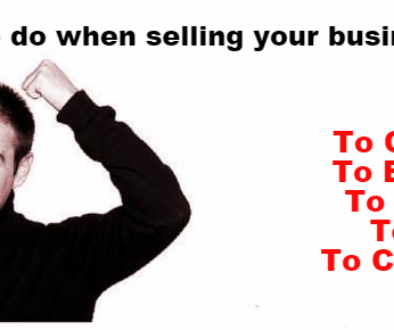Don’t Start a New Business — Buy an Existing Business
Don’t start it, buy it! Why should you buy a business versus start a new one? Here are ten solid reasons:
(1) The success rate for existing businesses purchased is significantly higher than the success rate for a new business startup. Statistics indicate a 90% failure rate for new business ventures within five years, while business brokers report that 70% of businesses they sold are still in business five years later. (Economist, Brian Headd, with SBA Office of Advocacy, report — Redefining Business Success: Distinguishing Between Closure and Failure.)
(2) An established customer base means immediate cash flow!
(3) Bank finance options: It is much easier to find capital to buy an existing business than to start a new one. Why? Banks know the statistics. Bankers are much more willing to lend money when there is an identified source of repayment already in place (i.e. cash flow).
(4) Seller financing: Many sellers of existing businesses are willing to provide financing at very reasonable terms. Why? For income tax reasons, to increase the probability of a sale, and to increase the overall net they receive from the sale from interest on the loan. And, if a seller is willing to carry back any part of the purchase price, it tells you the seller has confidence that the business will continue to succeed under your management.
(5) Projections for a startup are nothing more than an educated guess. Projections for existing businesses for sale are based on historical results. Which is more reliable?
(6) Startups always cost more than expected and may use up initial financial resources budgeted for the venture. This is one of the reasons start ups fail within the first couple of years. Just like a baker making bread from scratch, when launching a new business, you’d be rolling out the “dough” without knowing if there will the anticipated market for your new product or service. Mistakes will be made along the way and new approaches, that require additional expenditures, will need to be formulated. You will need to stay “fluid and flexible” so you can bend and twist along with the business as it takes shape.
(7) You may actually need to come up with less cash for your down payment plus working capital when you buy an existing business than you would need if you started your own new business venture. Why? With owner financing and a performing track record, your existing business purchase is very bankable…a new startup is not. The cash required to get the new business to a cash flow positive is unknown. Unless you are rolling in “dough,” this is problematic and threatens ultimate success.
(8) An established web site presence. Although each business will vary, most businesses rely to some extent on a business web site. The longer a web site has been established, and the more traffic that web site receives, the more value search engines place on that site. This is important as your web site ranking determines your placement in search engine results. In other words, building a new web site is not enough. Customers still need to find it. A quality, established web site can be a real asset, something that a new startup will not have.
(9) Many businesses listed for sale are fairly priced. One can often find a business acquisition whereby after the sale the new owner will be able to make an immediate livable salary with enough left over to pay debt service on the new loan and get a reasonable annual return on their investment.
(10) Less stress and strain: An existing business acquisition does not mean stress free. But it will be significantly less than if you were always wondering and worrying if customers would really come and, if and when, the monetary investment would pay off on a start-from-scratch business venture.
Buying an established business is a more efficient way to business ownership. Here’s a list of additional advantages of buying an existing business not discussed above:
Established suppliers / vendors
Furniture, Office Machines & Communication Equipment are in place
Experienced Employees
Relationships with professional advisers, insurance companies, advertisers
Location demographics has already been market tested & proven
Market presence
Policies and procedures are in place
Pricing and competition are already known quantities
Immediate Growth Potential
In the long run, buying an existing business is less costly than launching a start-up. Even if you pay a premium price for an existing business, at least you know what you are getting for your investment and can anticipate, to a certain degree, what the future will bring.
Finding an existing business with all the ingredients for success already in place is a safe investment and a great platform from which to grow and launch your entrepreneurial new ideas. By far, a much less risky avenue to achieving business ownership. No matter which road you take, however, there are no guarantees. You still need to be a sharp businessperson to make it work. Find out if you got what it takes to take the leap to business ownership. Take this 25-question entrepreneurial test.




